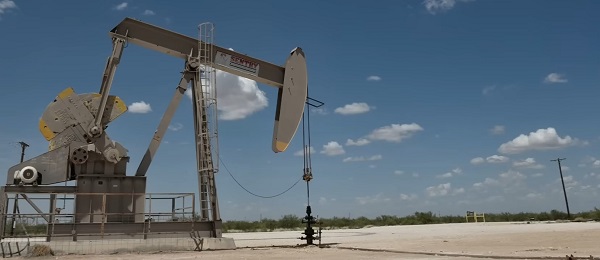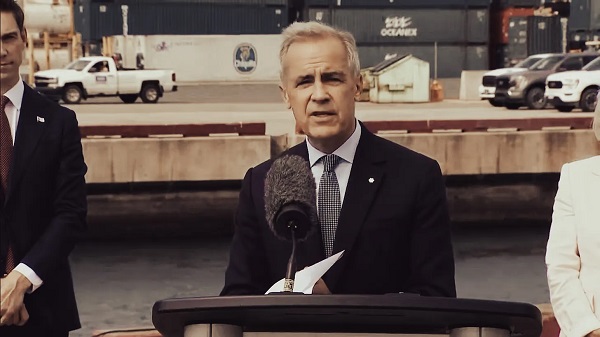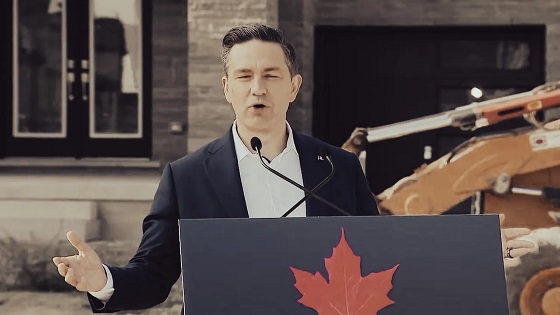Uncategorized
What is ‘productivity’ and how can we improve it

From the Fraser Institute
Earlier this year, a senior Bank of Canada official caused a stir by describing Canada’s pattern of declining productivity as an “emergency,” confirming that the issue of productivity is now in the spotlight. That’s encouraging. Boosting productivity is the only way to improve living standards, particularly in the long term. Today, Canada ranks 18th globally on the most common measure of productivity, with our position dropping steadily over the last several years.
Productivity is the amount of gross domestic product (GDP) or “output” the economy produces using a given quantity and mix of “inputs.” Labour is a key input in the production process, and most discussions of productivity focus on labour productivity. Productivity can be estimated for the entire economy or for individual industries.
In 2023, labour productivity in Canada was $63.60 per hour (in 2017 dollars). Industries with above average productivity include mining, oil and gas, pipelines, utilities, most parts of manufacturing, and telecommunications. Those with comparatively low productivity levels include accommodation and food services, construction, retail trade, personal and household services, and much of the government sector. Due to the lack of market-determined prices, it’s difficult to gauge productivity in the government and non-profit sectors. Instead, analysts often estimate productivity in these parts of the economy by valuing the inputs they use, of which labour is the most important one.
Within the private sector, there’s a positive linkage between productivity and employee wages and benefits. The most productive industries (on average) pay their workers more. As noted in a February 2024 RBC Economics report, productivity growth is “essentially the only way that business profits and worker wages can sustainably rise at the same time.”
Since the early 2000s, Canada has been losing ground vis-à-vis the United States and other advanced economies on productivity. By 2022, our labour productivity stood at just 70 per cent of the U.S. benchmark. What does this mean for Canadians?
Chronically lagging productivity acts as a drag on the growth of inflation-adjusted wages and incomes. According to a recent study, after adjusting for differences in the purchasing power of a dollar of income in the two countries, GDP per person (an indicator of incomes and living standards) in Canada was only 72 per cent of the U.S. level in 2022, down from 80 per cent a decade earlier. Our performance has continued to deteriorate since 2022. Mainly because of the widening cross-border productivity gap, GDP per person in the U.S. is now $22,000 higher than in Canada.
Addressing Canada’s “productivity crisis” should be a top priority for policymakers and business leaders. While there’s no short-term fix, the following steps can help to put the country on a better productivity growth path.
- Increase business investment in productive assets and activities. Canada scores poorly compared to peer economies in investment in machinery, equipment, advanced technology products and intellectual property. We also must invest more in trade-enabling infrastructure such as ports, highways and other transportation assets that link Canada with global markets and facilitate the movement of goods and services within the country.
- Overhaul federal and provincial tax policies to strengthen incentives for capital formation, innovation, entrepreneurship and business growth.
- Streamline and reduce the cost and complexity of government regulation affecting all sectors of the economy.
- Foster greater competition in local markets and scale back government monopolies and government-sanctioned oligopolies.
- Eliminate interprovincial barriers to trade, investment and labour mobility to bolster Canada’s common market.
Uncategorized
CNN’s Shock Climate Polling Data Reinforces Trump’s Energy Agenda


From the Daily Caller News Foundation
As the Trump administration and Republican-controlled Congress move aggressively to roll back the climate alarm-driven energy policies of the Biden presidency, proponents of climate change theory have ramped up their scare tactics in hopes of shifting public opinion in their favor.
But CNN’s energetic polling analyst, the irrepressible Harry Enten, says those tactics aren’t working. Indeed, Enten points out the climate alarm messaging which has permeated every nook and cranny of American society for at least 25 years now has failed to move the public opinion needle even a smidgen since 2000.
Appearing on the cable channel’s “CNN News Central” program with host John Berman Thursday, Enten cited polling data showing that just 40% of U.S. citizens are “afraid” of climate change. That is the same percentage who gave a similar answer in 2000.
Dear Readers:
As a nonprofit, we are dependent on the generosity of our readers.
Please consider making a small donation of any amount here.
Thank you!
Enten’s own report is an example of this fealty. Saying the findings “kind of boggles the mind,” Enten emphasized the fact that, despite all the media hysteria that takes place in the wake of any weather disaster or wildfire, an even lower percentage of Americans are concerned such events might impact them personally.
“In 2006, it was 38%,” Enten says of the percentage who are even “sometimes worried” about being hit by a natural disaster, and adds, “Look at where we are now in 2025. It’s 32%, 38% to 32%. The number’s actually gone down.”
In terms of all adults who worry that a major disaster might hit their own hometown, Enten notes that just 17% admit to such a concern. Even among Democrats, whose party has been the major proponent of climate alarm theory in the U.S., the percentage is a paltry 27%.
While Enten and Berman both appear to be shocked by these findings, they really aren’t surprising. Enten himself notes that climate concerns have never been a driving issue in electoral politics in his conclusion, when Berman points out, “People might think it’s an issue, but clearly not a driving issue when people go to the polls.”
“That’s exactly right,” Enten says, adding, “They may worry about in the abstract, but when it comes to their own lives, they don’t worry.”
This reality of public opinion is a major reason why President Donald Trump and his key cabinet officials have felt free to mount their aggressive push to end any remaining notion that a government-subsidized ‘energy transition’ from oil, gas, and coal to renewables and electric vehicles is happening in the U.S. It is also a big reason why congressional Republicans included language in the One Big Beautiful Bill Act to phase out subsidies for those alternative energy technologies.
It is key to understand that the administration’s reprioritization of energy and climate policies goes well beyond just rolling back the Biden policies. EPA Administrator Lee Zeldin is working on plans to revoke the 2010 endangerment finding related to greenhouse gases which served as the foundation for most of the Obama climate agenda as well.
If that plan can survive the inevitable court challenges, then Trump’s ambitions will only accelerate. Last year’s elimination of the Chevron Deference by the Supreme Court increases the chances of that happening. Ultimately, by the end of 2028, it will be almost as if the Obama and Biden presidencies never happened.
The reality here is that, with such a low percentage of voters expressing concerns about any of this, Trump and congressional Republicans will pay little or no political price for moving in this direction. Thus, unless the polls change radically, the policy direction will remain the same.
David Blackmon is an energy writer and consultant based in Texas. He spent 40 years in the oil and gas business, where he specialized in public policy and communications.
Uncategorized
Kananaskis G7 meeting the right setting for U.S. and Canada to reassert energy ties


Energy security, resilience and affordability have long been protected by a continentally integrated energy sector.
The G7 summit in Kananaskis, Alberta, offers a key platform to reassert how North American energy cooperation has made the U.S. and Canada stronger, according to a joint statement from The Heritage Foundation, the foremost American conservative think tank, and MEI, a pan-Canadian research and educational policy organization.
“Energy cooperation between Canada, Mexico and the United States is vital for the Western World’s energy security,” says Diana Furchtgott-Roth, director of the Center for Energy, Climate and Environment and the Herbert and Joyce Morgan Fellow at the Heritage Foundation, and one of America’s most prominent energy experts. “Both President Trump and Prime Minister Carney share energy as a key priority for their respective administrations.
She added, “The G7 should embrace energy abundance by cooperating and committing to a rapid expansion of energy infrastructure. Members should commit to streamlined permitting, including a one-stop shop permitting and environmental review process, to unleash the capital investment necessary to make energy abundance a reality.”
North America’s energy industry is continentally integrated, benefitting from a blend of U.S. light crude oil and Mexican and Canadian heavy crude oil that keeps the continent’s refineries running smoothly.
Each day, Canada exports 2.8 million barrels of oil to the United States.
These get refined into gasoline, diesel and other higher value-added products that furnish the U.S. market with reliable and affordable energy, as well as exported to other countries, including some 780,000 barrels per day of finished products that get exported to Canada and 1.08 million barrels per day to Mexico.
A similar situation occurs with natural gas, where Canada ships 8.7 billion cubic feet of natural gas per day to the United States through a continental network of pipelines.
This gets consumed by U.S. households, as well as transformed into liquefied natural gas products, of which the United States exports 11.5 billion cubic feet per day, mostly from ports in Louisiana, Texas and Maryland.
“The abundance and complementarity of Canada and the United States’ energy resources have made both nations more prosperous and more secure in their supply,” says Daniel Dufort, president and CEO of the MEI. “Both countries stand to reduce dependence on Chinese and Russian energy by expanding their pipeline networks – the United States to the East and Canada to the West – to supply their European and Asian allies in an increasingly turbulent world.”
Under this scenario, Europe would buy more high-value light oil from the U.S., whose domestic needs would be back-stopped by lower-priced heavy oil imports from Canada, whereas Asia would consume more LNG from Canada, diminishing China and Russia’s economic and strategic leverage over it.
* * *
The MEI is an independent public policy think tank with offices in Montreal, Ottawa, and Calgary. Through its publications, media appearances, and advisory services to policymakers, the MEI stimulates public policy debate and reforms based on sound economics and entrepreneurship.
As the nation’s largest, most broadly supported conservative research and educational institution, The Heritage Foundation has been leading the American conservative movement since our founding in 1973. The Heritage Foundation reaches more than 10 million members, advocates, and concerned Americans every day with information on critical issues facing America.
-

 COVID-192 days ago
COVID-192 days agoWhy FDA Was Right To Say No To COVID-19 Vaccines For Healthy Kids
-

 Energy2 days ago
Energy2 days agoTrump Admin Torpedoing Biden’s Oil And Gas Crackdown
-

 Crime2 days ago
Crime2 days agoTransgender Roomate of Alleged Charlie Kirk Assassin Cooperating with Investigation
-

 Crime1 day ago
Crime1 day agoDown the Charlie Kirk Murder Rabbit Hole
-

 Business20 hours ago
Business20 hours agoCarney Admits Deficit Will Top $61.9 Billion, Unveils New Housing Bureaucracy
-

 Energy2 days ago
Energy2 days agoThe IEA’s Peak Oil Fever Dream Looks To Be In Full Collapse
-

 Business1 day ago
Business1 day agoIt’s time to finally free the beer
-

 Artificial Intelligence21 hours ago
Artificial Intelligence21 hours agoWhat are data centers and why do they matter?







